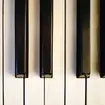The 15 best pieces of Russian classical music
26 September 2014, 14:34 | Updated: 5 April 2017, 17:41
From the nationalism of the Mighty Handful, through Stravinsky's revolutionary Rite, to Shostakovich's dazzling piano concertos, these are the best classical pieces that Russian composers have given the world.
Symphonic, chamber, instrumental, choral - Russian music is the best. Here's a whole lot to get you started!
Mikhail Glinka: Ruslan and Lyudmila, Overture (1842)
The father of Russian music, Glinka influenced his countrymen to produce a distinctive national style all of their own. The opera Ruslan and Lyudmila is a folk tale with all the necessaries - beautiful princess, valiant suitor, evil wizard, abduction, battles and rescue. Tchaikovsky called Ruslan, 'the Tsar of operas'. The thrilling overture is a favourite in its own right and performed more than the opera.
Mily Balakirev: Islamey (1869)
Balakirev's nationalistic music was full of authentic Russian flavours. He composed Islamey after a trip to the Caucasus that left a deep impression. The piece had a big influence on other composers, including fellow members of the group known as The Mighty Handful or The Five. Borodin quoted Islamey in Prince Igor, as did Rimsky-Korsakov in Scheherazade. It's extremely difficult; Scriabin seriously damaged his right hand fanatically practising it.
Modest Mussorgsky: Pictures at an Exhibition (1874)
Mussorgsky originally wrote his set of picturesque piano pieces in homage to a late friend, the painter Vladimir Hartmann. Today, Pictures at an Exhibition is most often heard in an orchestrated form, usually the colourful 1922 version by Ravel.
Pyotr Ilyich Tchaikovsky: 1812 Overture (1880)
From its introductory Russian hymn to the bombastic cannon fire that concludes this unashamedly nationalistic piece, it’s one of the greatest examples of how Tchaikovsky was a master of orchestration.
Alexander Borodin: In the Steppes of Central Asia (1880)
When Tsar Alexander II held his Silver Jubilee in 1880, he commissioned Borodin - another of The Mighty Handful - to compose a symphonic poem. It was intended to be the soundtrack to a tableau vivant – with actors holding a pose, on a set, lit to resemble a painting. The ‘production’ was called off after an assassination attempt. Rimksy-Korsakov rescued the piece, though, for his 1880 season with the Russian Opera Orchestra.
Nikolai Rimsky-Korsakov: Scheherazade (1888)
Rimsky-Korsakov, also a member of The Five, loosely based his symphonic suite on stories from the Arabian Nights. Despite there being 1001 nights in the original collection, his version has just four movements. Rimsky-Korsakov settled on the work's title because he thought it "brought to everyone’s mind the fairy-tale wonders of Arabian Nights and the East in general."
César Cui: Orientale (1894)
César Cui, the least known member of The Five, was a professional military engineer, specialising in fortification. Cui's music is largely forgotten, with the exception of Orientale, the ninth piece in his violin and piano collection, Kaleidoscope. It’s often re-arranged for cello and piano.
Alexander Glazunov: The Seasons (1899)
The prolific Glazunov completed eight symphonies, composed chamber and choral music, a violin and two piano concertos. He also wrote three ballets. The last, The Seasons, premiered in St. Petersburg in 1900. Unconventionally, the ballet does not have a story but instead creates four tableaux based on the changing seasons.
Sergei Rachmaninov: Piano Concerto No.2 in C minor (1901)
After the disastrous premiere of his Symphony No. 1, Rachmaninov fell into a deep depression and suffered severe writer's block. Luckily, the composition of his Piano Concerto No. 2 marked his full recovery. Glorious melody after glorious melody flows from the keyboard. If, when listening to the second movement, you think you might have heard the tune somewhere else before, take a listen to the power ballad, All By Myself.
Scriabin: Poem of Ecstasy (1905-1908)
Scriabin described music as being the most highly evolved of all the human arts, and ecstasy as the most highly evolved of all human emotions. Scriabin's programme for the work divides the work into three parts: his soul in the orgy of love; the realisation of a fantastical dream; and the glory of his own art.
Igor Stravinsky: The Rite of Spring (1913)
The Parisian premiere of Stravinsky’s ballet caused the most famous riot in the history of music. The earthy, violent score was scandalous for its disregard of accepted ballet and its seeming refusal to adhere to any kind of tradition. By the time the first part of the ballet was over, the police had already arrived and were making efforts to calm the outraged audience. It still packs a punch.
Sergei Prokofiev: Romeo and Juliet (1935)
Prokofiev’s first big idea for Romeo and Juliet was probably just a little beyond the pale: he was going to change it to have a happy ending. But he didn't go that far. The centrepiece of the work must be 'The Montagues and Capulets' - sometimes known as 'The Dance of the Knights'. It's music that has possibly not been matched for sheer drama since it was written.
Reinhold Glière: Harp Concerto (1938)
To write this work, Glière consulted the harpist Ksenia Erdely. She made so many suggestions that he offered to credit her as co-composer, but she declined. Accessible and romantic, there are moments that recall the Viennese classical style and Russian romantic nationalism.
Aram Khachaturian: Spartacus (1954)
To prepare for this work, the composer took a trip around Italy, visiting the places at the centre of the famous story of a slave rebellion. By far the most captivating moment comes in Act II when Spartacus manages to free his wife Phrygia and the lovers celebrate. It’s a theme made all the more popular by its use in the television drama, The Onedin Line.
Dmitri Shostakovich: Piano Concerto No.2 in F major (1957)
Four years after the death of Stalin, Shostakovich wrote this dazzling piece as a birthday present for his son Maxim – an accomplished pianist. Either side of the soulful Andante are two vivacious movements, full of an overwhelming sense of fun. Shostakovich apparently hid all sorts of family references within the music – jokes that only he and Maxim would truly understand.









































